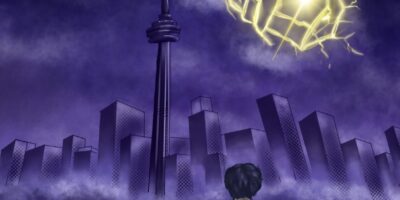In the recent University of Waterloo Petroleum Energy Association (UWPEA) facilitated trip to the Shell refinery in Sarnia, the organization stayed true to its goal to ‘educate and empower students about the energy industry and fuel them with support to follow a career path related to energy.’ Around twenty-five engineering students travelled by bus to the Shell Refinery in Sarnia on November 9th. The students met with Shell employees, including several recent Waterloo grads, to learn about the fascinating and challenging problems presented in their work. Employees talked about many things, including the two possible ways of becoming a permanent employee: through recruitment to the company after a brief interview process or through an initial internship. They also discussed safety issues at the plant (a high priority given the possibilities of volatile gases leaking), and the ways that safety procedures manage to stay ahead of possible dangers.
The Waterloo group also had the opportunity to glimpse a little bit of the action as they took a quick tour of the site. The Shell refinery in Sarnia has the capacity to process 75,000 barrels of oil per day and is able to store approximately a month and a half worth of natural gas on site. They got to see many of the processes studied in the classroom in operation in the field, as well as counter measures used to mitigate the environmental impacts. Familiar processes included a BTX unit which is used to separate aromatic hydrocarbons to form different products. (BTX stands for Benzene, Touluene and Xylene, of which there are several distinct isomers). They also got to take a look at a Hydrodesulfurization unit (HDS), which removes sulfur from natural gas and refined petroleum products, and a Cat Cracker, which uses catalysts to break down heavy hydrocarbons in to lighter hydrocarbons to form products such as gasoline, kerosene and jet fuel. Through these processes and more, the refinery is able to create over 12 distinctly different products from raw crude oil, including Furnace oils, Diesel fuels, Jet fuel, Propane, pure chemicals and low sulphur gasoline.
Given the explosive nature of natural gases the students received a lengthy talk about safety before their bus tour of the site. Each member of the group was given a card outlining what to do in the event of any kind of disaster and the bus had seat belts to satisfy safety requirements. Furthermore, for reasons unknown, though it may be related to the protection of trade secrets, no photography was permitted.
This trip provided valuable insight for those considering a career in the petroleum energy industry. It was yet another reminder that not all jobs are desk jobs, although sitting behind a desk sometimes may be a part of them. As an engineer you may be required to spend considerable amounts of time in front of a computer creating models. However, you might also get the chance to be more hands-on and assist in the creation, alteration, and maintenance of very large systems, in this case a system which takes up a vast spread of land extending over 32km south of Sarnia. Jobs in industry are full of opportunities to work in innovative environments with cutting edge technology. The Sarnia trip further confirmed that jobs in the petrochemical industry can be both challenging and rewarding.




Leave a Reply